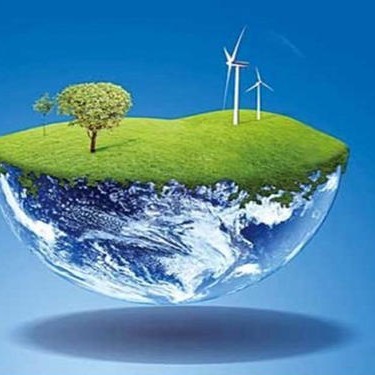
-
 Afrikaans
Afrikaans -
 Albanian
Albanian -
 Amharic
Amharic -
 Arabic
Arabic -
 Armenian
Armenian -
 Azerbaijani
Azerbaijani -
 Basque
Basque -
 Belarusian
Belarusian -
 Bengali
Bengali -
 Bosnian
Bosnian -
 Bulgarian
Bulgarian -
 Catalan
Catalan -
 Cebuano
Cebuano -
 China
China -
 China (Taiwan)
China (Taiwan) -
 Corsican
Corsican -
 Croatian
Croatian -
 Czech
Czech -
 Danish
Danish -
 Dutch
Dutch -
 English
English -
 Esperanto
Esperanto -
 Estonian
Estonian -
 Finnish
Finnish -
 French
French -
 Frisian
Frisian -
 Galician
Galician -
 Georgian
Georgian -
 German
German -
 Greek
Greek -
 Gujarati
Gujarati -
 Haitian Creole
Haitian Creole -
 hausa
hausa -
 hawaiian
hawaiian -
 Hebrew
Hebrew -
 Hindi
Hindi -
 Miao
Miao -
 Hungarian
Hungarian -
 Icelandic
Icelandic -
 igbo
igbo -
 Indonesian
Indonesian -
 irish
irish -
 Italian
Italian -
 Japanese
Japanese -
 Javanese
Javanese -
 Kannada
Kannada -
 kazakh
kazakh -
 Khmer
Khmer -
 Rwandese
Rwandese -
 Korean
Korean -
 Kurdish
Kurdish -
 Kyrgyz
Kyrgyz -
 Lao
Lao -
 Latin
Latin -
 Latvian
Latvian -
 Lithuanian
Lithuanian -
 Luxembourgish
Luxembourgish -
 Macedonian
Macedonian -
 Malgashi
Malgashi -
 Malay
Malay -
 Malayalam
Malayalam -
 Maltese
Maltese -
 Maori
Maori -
 Marathi
Marathi -
 Mongolian
Mongolian -
 Myanmar
Myanmar -
 Nepali
Nepali -
 Norwegian
Norwegian -
 Norwegian
Norwegian -
 Occitan
Occitan -
 Pashto
Pashto -
 Persian
Persian -
 Polish
Polish -
 Portuguese
Portuguese -
 Punjabi
Punjabi -
 Romanian
Romanian -
 Russian
Russian -
 Samoan
Samoan -
 Scottish Gaelic
Scottish Gaelic -
 Serbian
Serbian -
 Sesotho
Sesotho -
 Shona
Shona -
 Sindhi
Sindhi -
 Sinhala
Sinhala -
 Slovak
Slovak -
 Slovenian
Slovenian -
 Somali
Somali -
 Spanish
Spanish -
 Sundanese
Sundanese -
 Swahili
Swahili -
 Swedish
Swedish -
 Tagalog
Tagalog -
 Tajik
Tajik -
 Tamil
Tamil -
 Tatar
Tatar -
 Telugu
Telugu -
 Thai
Thai -
 Turkish
Turkish -
 Turkmen
Turkmen -
 Ukrainian
Ukrainian -
 Urdu
Urdu -
 Uighur
Uighur -
 Uzbek
Uzbek -
 Vietnamese
Vietnamese -
 Welsh
Welsh -
 Bantu
Bantu -
 Yiddish
Yiddish -
 Yoruba
Yoruba -
 Zulu
Zulu
fiberglass grating
The Advantages and Applications of Fiberglass Grating
Fiberglass grating is a versatile and innovative material that has become increasingly popular in various industries due to its unique properties and benefits. Made from fiberglass reinforced plastic (FRP), this type of grating is known for its strength, durability, and resistance to a wide range of environmental conditions. In this article, we will explore the advantages of fiberglass grating, its applications, and why it is a superior choice for many industrial and commercial settings.
Strength and Durability
One of the most significant advantages of fiberglass grating is its exceptional strength-to-weight ratio. Unlike traditional materials such as steel or aluminum, fiberglass grating is lightweight, making it easier to handle and install. Despite its light weight, it can support heavy loads and is capable of withstanding high traffic. This durability makes it ideal for applications in industries that face harsh conditions, including chemical processing, marine environments, and wastewater treatment.
Furthermore, fiberglass grating is highly resistant to corrosion, rust, and chemical damage. Unlike metal grating, which can deteriorate over time when exposed to moisture and chemicals, fiberglass is inert and will not corrode. This feature ensures a longer lifespan, reducing the need for frequent replacements and maintenance.
Safety Features
Safety is a critical concern in many industrial settings, and fiberglass grating excels in this area. Its slip-resistant surface is a vital attribute in preventing accidents in areas where water, oil, or other slippery substances are present. The grating can be manufactured with various surface textures and patterns, enhancing traction and ensuring a safer footing for workers.
Additionally, fiberglass grating is non-conductive, making it an ideal choice for electrical applications
. This property not only helps to minimize the risk of electrical hazards but also makes it suitable for environments with high electromagnetic interference.Versatile Applications
fiberglass grating

The applications of fiberglass grating are vast and varied. It is commonly used in the following industries
1. Chemical Processing The chemical industry often requires materials that can withstand aggressive chemicals and constant exposure to harsh conditions. Fiberglass grating’s resistance to corrosion makes it the perfect choice for flooring, platforms, walkways, and chemical containment areas.
2. Water Treatment In wastewater treatment plants, fiberglass grating is used for walkways, platforms, and stairways because of its ability to resist the corrosive effects of water and chemicals present in sewage.
3. Marine Applications Due to its resistance to saltwater and UV rays, fiberglass grating is widely used in the marine industry. It is often found on docks, piers, and boat ramps, providing safety and durability in challenging environments.
4. Food and Beverage Industry Hygienic standards are paramount in food production and processing facilities. Fiberglass grating complies with health and safety regulations and is easy to clean, making it an excellent option for this sector.
5. Electrical Environments Fiberglass grating is used in areas where electrical safety is a concern. Its non-conductive properties provide an additional layer of safety in industrial plants.
Conclusion
In conclusion, fiberglass grating presents an array of advantages that make it a superior choice for various industrial and commercial applications. Its strength, durability, resistance to corrosion, slip-resistant surfaces, and non-conductive nature ensure that it meets the diverse needs of many industries. As companies continue to prioritize safety, efficiency, and sustainability, the demand for fiberglass grating is likely to rise. By choosing this innovative material, businesses can not only enhance safety and performance but also reduce long-term costs associated with maintenance and replacement. Whether in chemical processing, water treatment, or marine environments, fiberglass grating proves itself to be an indispensable asset in modern industry.









